Memory Test Solutions
Why Teradyne?
Teradyne’s customers count on us for our Near Device Under Test (DUT) technology that gives memory device manufacturers a guaranteed performance advantage. A brief description of dynamic memory and storage memory devices will highlight why device manufacturers depend on Teradyne’s memory test solutions.
Dynamic memory can also be referred to as volatile memory. Using Double Data Rate (DDR) technology this type of memory only maintains its data while the device is powered. There are also very high-speed memories called Graphics Double Data Rate (GDDR) memories that work in conjunction with the Graphics Processing Unit (GPU) to display ultra-high resolution pictures with thousands of colors.
So, using a laptop as an example, the dynamic memory is used by the Central Processing Unit (CPU) to do work. The memory needs to keep up with the processor as it processes data performing functions such as running computer apps, communicating across networks and working with graphics processors to display information. The faster the CPU means the faster the memory. The speed of your laptop will run at the speed of the CPU or memory, whichever is slowest. As processors have increased in speed there is the need for memory devices to keep up. As a result, there are generations of DDR devices used in computers and Low Power Double Data Rate (LPDDR) used in applications like cell phones.
The other type of memory device is called storage memory or non-volatile memory. This memory has the capability to store saved data even if the power is turned off. Using your laptop as an example again, a USB flash drive is an external flash drive that plugs into a USB port. It is a secondary source of memory used to save information. Flash memory speeds are also continuing to increase – speeding up the operation of the laptop.
Why do faster speeds in memory devices correlate or matter to the architecture of a test system? Some device test systems are designed with a cabled signal delivery between the instrument board and DUT. Now, the test instruments need to interface with the DUT at faster and faster speeds. Devices are designed to push data a short distance. If the instrument board is cabled and far away from the device it can introduce attenuation in the device signal that the tester is analyzing.
Teradyne’s Memory Test Solutions
Teradyne’s Magnum memory test solutions are designed with Near DUT Test Technology. The instrument boards are within the test interface unit and test head extension which delivers the shortest distance available, in the industry, between the DUT and the test instrument. This architectural design breakthrough gives memory device manufacturers the advantage of ‘at speed testing’ to fully test the performance of the device. Not only does it improve data signal integrity, it also creates a much shorter Round Trip Delay (RTD) for decreased test times for Read Modify Write (RMW) patterns and it enables very higher pin density for greater parallel site count testing.
The architectural design of the Magnum accommodates today’s memory devices and is ready to test the speed of tomorrow’s memory devices whether they are LPDDR, DDR, GDDR or Flash devices.

Teradyne’s memory test solutions are designed for high speed, accurate data signals and include:
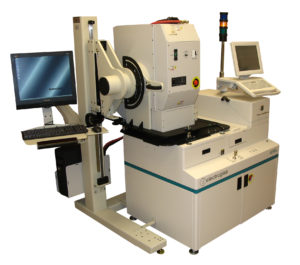
Magnum 2
Teradyne’s Magnum 2 test system delivers high throughput and high parallel test efficiency for high performance non-volatile memories, static RAM memories and logic devices.
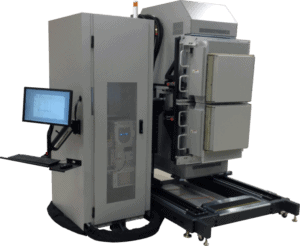
Magnum V
Teradyne’s Magnum V systems delivers high throughput and high parallel test efficiency for ultra-high performance FLASH and DRAM memories. Magnum V’s largest configuration delivers up to 20,480 digital channels at 1600Mbps per channel.
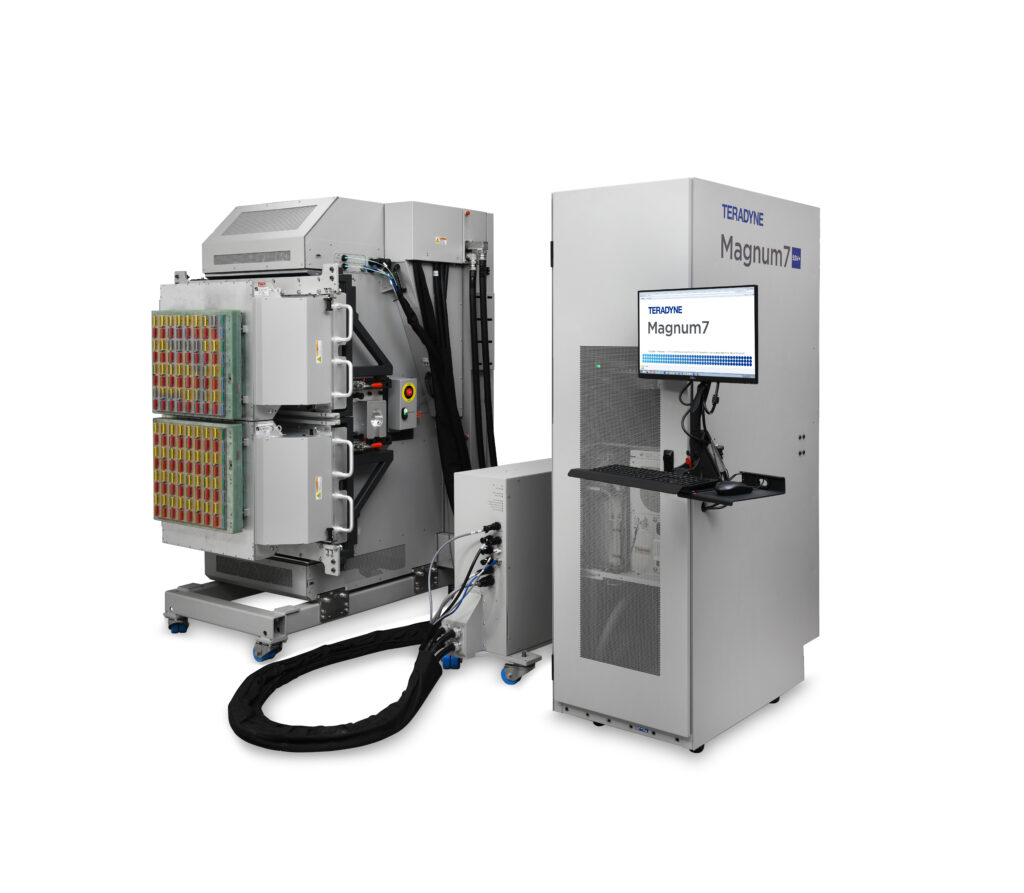
Magnum 7
Teradyne’s Magnum 7 is intelligently designed to test the latest generation of NAND flash devices. High speed flash devices are enabling the next generation of UFS and PCIe applications. The AI revolution is fueled by massive amounts of data stored on high performance data center SSD’s and next generation AI PC’s, laptops and mobile devices. Magnum 7’s largest configuration delivers up to 18,432 I/O channels at 5.28Gbps per channel.
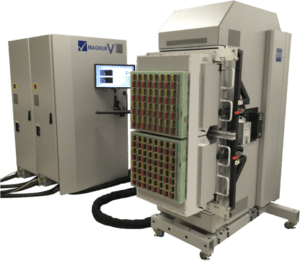
Magnum VUy
Teradyne’s Magnum VUy system is a flexible, superset test platform for all NAND and MCP products, both cutting edge UFS 4.1, uMCP, and PCIe Gen 5 mobile and automotive devices, as well as ONFI and Toggle NAND, and legacy MCP’s such as UFS 3.1, PCIe Gen 4, e.MMC, and eMCP.
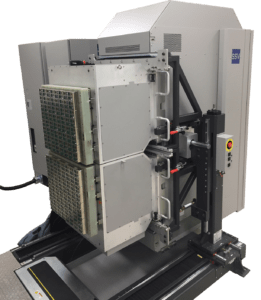
Magnum EPIC
Teradyne’s Magnum EPIC is a high-performance test solution for latest generation DRAM devices. These devices are key enablers for technologies like 5G, AI, cloud computing, autonomous vehicles, AR/VR and applications with high definition graphics.